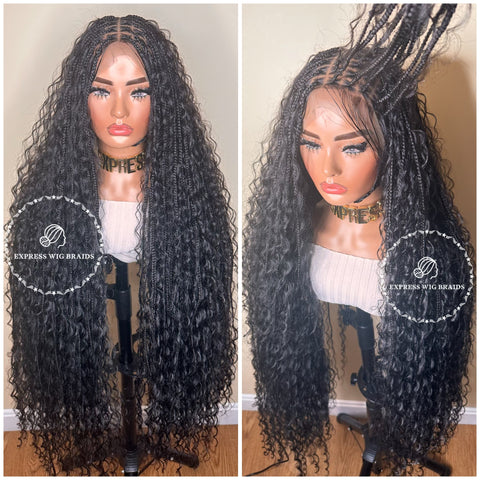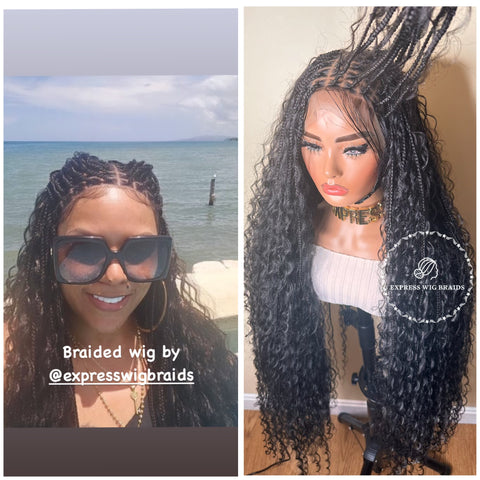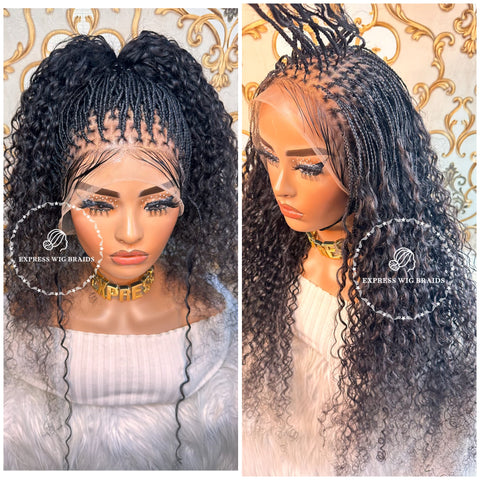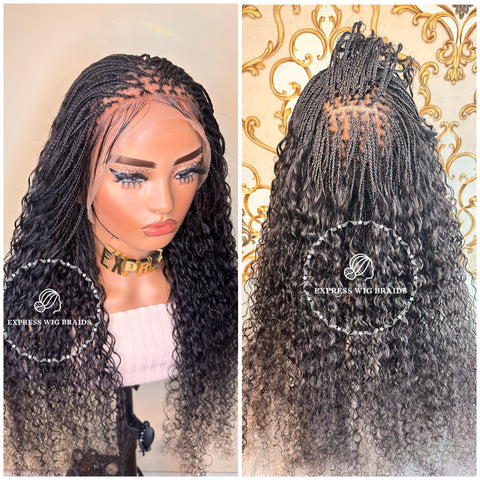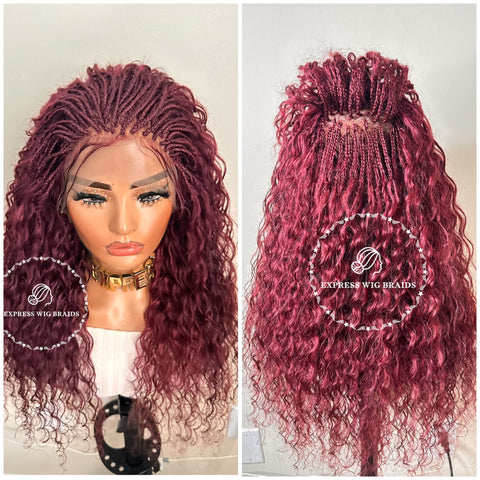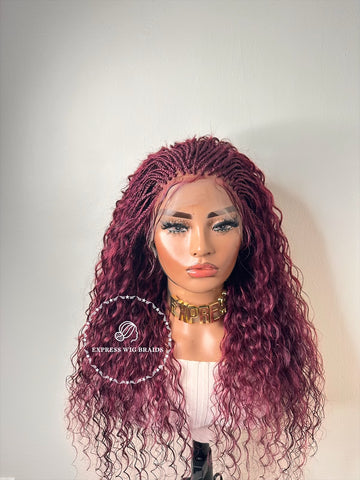How to Maintain Healthy Hair During Pregnancy

For some women, the hormonal changes of pregnancy result in fuller, shinier hair, while others may face challenges like thinning, breakage, or more drastic hair loss.
Regardless of how pregnancy affects your hair, taking steps to ensure it stays healthy and manageable is key during this unique time.
In this blog post, we'll guide you through everything you need to know about caring for your hair during pregnancy, including how pregnancy affects hair, to the best practices for keeping your hair strong and shiny.
How Pregnancy Hormones Affect the Hair
Pregnancy hormones have a significant impact on the changes your hair experiences. The rise in estrogen, which supports the pregnancy, can prolong the growth phase of the hair cycle. This often results in thicker, shinier hair, although not every woman will have this experience.
Let’s take a look at how pregnancy hormones affect your hair:
1. Increased Hair Growth: During pregnancy, many women notice their hair becoming thicker as estrogen lengthens the growth phase of the hair cycle. This leads to fewer hairs shedding and faster new hair growth. For some, this results in a noticeable boost in hair texture and volume, giving them that “pregnancy glow” with fuller, healthier-looking hair.
2. Dryness and Dullness: While pregnancy can result in thicker hair for some women, others may struggle with dryness, brittleness, or a lack of shine. These issues could be linked to hormonal changes that affect oil production on the scalp, with additional factors such as hydration, diet, and the environment contributing to the problem.
3. Changes in Scalp Health: Hormonal changes during pregnancy can also affect the health of your scalp, leading to problems like dandruff, itchiness, or an overly oily scalp. These issues may be something you’ve never experienced before.
4. Postpartum Hair Loss: After childbirth, a significant drop in estrogen levels can cause increased hair shedding in the months that follow. Many women experience postpartum hair loss, where hair that was retained during pregnancy begins to fall out, sometimes in noticeable amounts.
This is a common occurrence and, while it may be alarming, it typically resolves on its own within a few months.
Tips for Maintaining Healthy Hair During Pregnancy
Whether you're dealing with thicker hair, a drier scalp, or a combination of both, there are ways to ensure that your hair remains healthy and manageable throughout pregnancy.
Here are some of the best practices:
1. Avoid Tight Hairstyles
Your hair might be more fragile than usual during pregnancy, so it’s important to be gentle when styling. Styles like tight ponytails, buns, or braids can cause unnecessary tension on your hair and lead to breakage. Opt for loose hairstyles that don’t pull on your hair.
Pro tips:
Braided wigs are a fantastic option for protecting your natural hair by reducing the stress of daily styling.
Also, they not only provide protection but also give you a stunning and low-maintenance way to achieve that perfect, polished look.
2. Wash Your Hair Less Frequently
Washing your hair too often can strip your scalp and hair of natural oils, especially if you're prone to dry hair. Aim to wash your hair every 2–3 days, or even less frequently if your scalp isn’t particularly oily.
3. Avoid Heat Styling
If possible, try to reduce the use of heat-styling tools like blow dryers, flat irons, and curling irons. Heat can make your hair dry and brittle, leading to split ends and breakage. If you must use them, always apply a heat protectant spray.
4. Gentle Brushing
Use a wide-toothed comb or a brush with soft bristles to gently detangle your hair. Start at the ends and work your way up to avoid tugging at knots that could cause breakage.
5. Stay Hydrated
Staying hydrated is important during pregnancy for both your overall health and the health of your hair. When you're dehydrated, your hair can become dry and brittle, leading to breakage.
Aim to drink plenty of water throughout the day at least 8 to 10 glasses especially if you're dealing with dry hair or scalp issues. If plain water doesn’t appeal to you, consider infusing your water with fruits.
6. Eat Balanced Diet
Ensure that your diet includes nutrient-rich foods, such as protein, and plenty of fruits and vegetables. Hair is made up of keratin, a protein, so ensure you're consuming enough protein sources.
Omega-3 Fatty Acids also help nourish the hair follicles and support healthy scalp skin. Include plenty of fruits and vegetables rich in vitamins A, C, and E, which help support healthy hair growth.
Biotin (a B vitamin) is also essential for healthy hair, so consider incorporating foods like eggs, nuts, and avocados into your diet. Iron-rich foods and zinc are also vital for hair health.
Eating a balanced diet is essential for your overall health and will directly impact the health of your hair.
7. Stay Stress-Free
Practice stress-relieving techniques like yoga, meditation, or deep breathing exercises to help reduce anxiety and promote overall well-being. Additionally, getting enough sleep and taking time for self-care will go a long way in supporting the health of your hair.
8. Use Gentle, Hair Care Products
Choose hair care products that are free of harsh chemicals like sulfates and parabens. Opt for gentle shampoos and conditioners that will nourish your hair without causing irritation or dryness.
Pro tips:
Organic hair care products support hair growth and prevent hair loss. They are rich in essential natural ingredients that deeply penetrate the hair shaft to provide nourishment from within.
Conclusion
Taking care of your hair during pregnancy involves nourishing your body from within, using gentle and safe hair care products, and being mindful of how hormonal changes impact your hair.
Whether you're enjoying thick, shiny hair or managing issues like dryness and thinning, these tips can help maintain the health and appearance of your hair.
Also, keep in mind that pregnancy-related hair changes are temporary, and with proper care, you can keep your hair looking vibrant and healthy throughout this special time.
However, if you’re concerned about significant hair changes, it’s always a good idea to reach out to your healthcare provider for personalized guidance.
